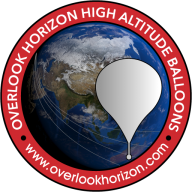A new NASA mission is testing a new way to navigate our solar system by hoisting its sail into space – not to catch the wind, but the propulsive power of sunlight.
NASA’s Advanced Composite Solar Sail System is led by the agency’s Ames Research Center in California’s Silicon Valley. The microwave oven-sized CubeSat is scheduled to launch aboard a Rocket Lab Electron rocket from the company’s Launch Complex 1 on the Mahia Peninsula of New Zealand. The launch window opens at 3 p.m. PDT on Tuesday, April 23 (10 p.m. UTC). Successful deployment and operation of the solar sail’s lightweight composite booms will prove the capability and open the door to larger scale missions to the Moon, Mars, and beyond.
Once it arrives in its orbit, roughly 600 miles above Earth, the CubeSat will deploy a lightweight sunlight-powered composite solar sail system that measures more than 800 square feet. Much like a sailboat uses wind to traverse the ocean, the solar sail technology will use the pressure of sunlight to travel through space and perform a series of maneuvers to demonstrate orbit raising and lowering. Throughout the demonstration, the spacecraft may be visible to the naked eye in the night sky.
Media interested in scheduling an interview with one of the NASA Ames engineers involved with the development of the CubeSat should email the NASA Ames Office of Communications at arc-dl-newsroom@mail.nasa.gov.
A media resource reel including animated clips of the solar sail system is available here.
Get launch updates, breaking news, and images on the small satellites blog as well as NASA Ames’ Instagram, Facebook, and X.
For more information about NASA’s Ames Research Center, visit:
-end-
Rachel Hoover
Ames Research Center, Silicon Valley, Calif.
650-604-4789
